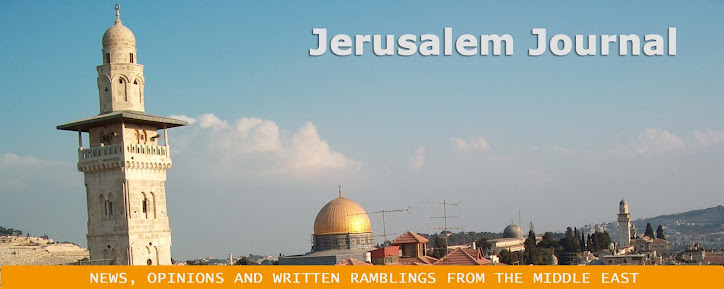Jan. 25, 2010
By Nicole Jansezian
European taxpayers are pouring millions of Euros into anti-Israel organizations through the European Union, an Israeli watchdog group charged at a news conference.
NGO Monitor is suing the European Union for failing to produce details of its funding of non governmental organizations, wary that most of the Palestinian institutions receiving money are using it to “demonize and delegitimize” Israel. The suit was filed last week.
Many of the organizations that have or are receiving EU funding have signed documents expressing anti-normalization with Israel, Gerald Steinberg, president of NGO Monitor, said on Wednesday that his organization has petitioned for the information since 2008.
“We have made every effort to obtain the documents necessary for analysis for over a year, without any substantive response,” he added. "”We therefore have no other option than to take this issue to the courts and sincerely hope this will lead the European Union to act in a responsible, law-abiding manner on such critical funding issues.”
The lawsuit was filed Wednesday against the European Commission, the executive branch of the European Union.
Based on information gathered from the EU’s website and scant information the EU provided to the group, NGO Monitor identified some $50 million given to about 90 Israeli and Palestinian NGOs.
“A lot of these organizations are at the core at the center of the campaign to demonize Israel and delegitimize Israel,” Steinberg charged. “They call Israel an ‘apartheid state.’ They are using terms like war crimes. This demonization process was recently characterized by Prime Minister (Benjamin) Netanyahu as parallel to the Iranian nuclear threat. We take this seriously.”
The EU denied many requests made by NGO Monitor citing issues such as “security,” “privacy,” and “commercial interests.”
NGO Monitor legal counsel, Trevor Asserson of Asserson Law Offices, said the withholding of information is “absurd when you are talking about an NGO who is carrying out peace within a region.”
Asserson pointed out that in the documents that the EU did send, information was erased and eligibility criteria was blanked out.
Using information available on the EU website, Steinberg estimated that up to 70 Israeli NGOs receive funding but that three quarters of them are groups that “are involved with demonization” of Israel. Some 70 to 80 Palestinian organizations receive funding, and very few of them supply humanitarian aid. Most are consider “peace partnership” groups.
But Steinberg charged that many of these organizations are involved in strategizing how to bring legal action against Israel in other nations and promoting economic boycotts of the Jewish state.
“We’re not saying that they only fund groups that delegitimize Israel, but we’re saying they fund a lot of groups that delegitimize Israel,” Steinberg said. We’re talking about a well-funded, highly structured campaign to delegitimize Israel.”
David Kriss, EU press and information manager, said that the European Commission has provided NGO Monitor “with comprehensive information on the funding of projects in Israel and in the region.”
He added that EU policy is not required to be reflected by the funding recipients “in all their statements, seminars or publications.... Moreover, the EU fully supports diversity of opinion and the right of expression as long as this is in line with its fundamental democratic principles.”




